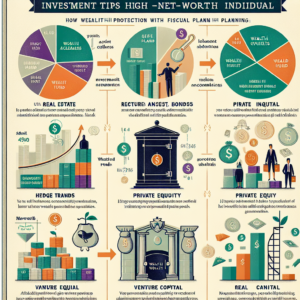
# Top Brokers for Global Investments
In a world increasingly interconnected, global investments offer investors an opportunity to diversify their portfolios across international boundaries. Whether you’re looking to tap into emerging markets, capitalize on currency fluctuations, or simply spread your risk across a wider array of assets, choosing the right broker is critical for success in international investing. Below, we’ve outlined some of the top brokers that are equipped to handle your global investment needs. Each broker is evaluated based on their range of international markets, ease of use, fee structure, and research tools.
##
Interactive Brokers
Interactive Brokers (IBKR) is often cited as the go-to platform for global investors for good reason. With access to over 135 markets in 33 countries, IBKR offers one of the most comprehensive platforms for international trading.
###
Pros:
– **Wide Range of Products:** From stocks and options to futures and spot currencies, IBKR lets you trade a vast array of instruments.
– **Robust Research Tools:** The platform provides extensive research tools and global market data to help make informed decisions.
– **Competitive Fees:** Fees are relatively low, especially for high-volume traders, with discounts for larger trades.
###
Cons:
– **Complexity:** The platform’s vast array of tools and options can be overwhelming for beginners.
– **Minimum Activity Fees:** IBKR may not be cost-effective for investors with lower trade volumes due to monthly minimum activity fees.
##
Fidelity Investments
Fidelity is a well-established broker that offers international trading across 25 countries and in 16 currencies. It’s a great option for those looking to combine their domestic and international investments under one roof.
###
Pros:
– **No Account Minimums or Maintenance Fees:** Making it accessible for investors of all sizes.
– **Extensive Research:** Fidelity provides comprehensive research on foreign markets and stocks.
– **Quality Customer Service:** Known for its high-quality, 24/7 customer support.
###
Cons:
– **Higher Fees for Some Transactions:** International trades can incur higher fees than domestic trades.
– **Limited Direct Access:** While Fidelity offers a broad reach, direct access to foreign exchanges is more limited compared to some competitors.
##
Charles Schwab
Charles Schwab offers a unique approach to international investing with its Global Account, allowing direct trading in foreign markets in their local currencies.
###
Pros:
– **Direct Market Access:** Trade directly on international exchanges in up to 12 countries.
– **No Foreign Transaction Fees:** Schwab Global Account holders are not charged foreign transaction fees, though other fees may apply.
– **Strong Research Tools:** Schwab offers comprehensive tools and research to guide your international investment decisions.
###
Cons:
– **Account Separation:** The Global Account is separate from a standard Schwab brokerage account, requiring a different login.
– **Limited Countries:** While direct, the number of countries available via the Global Account is more limited than some other top brokers.
##
E*TRADE
E*TRADE, now owned by Morgan Stanley, doesn’t offer direct access to international markets but allows investors to invest in global markets through American Depositary Receipts (ADRs) and international ETFs.
###
Pros:
– **Ease of Use:** The platform is well-designed, making it easy for both beginners and experienced traders.
– **Access to ADRs and International ETFs:** This allows for simplified global investing without direct access to foreign exchanges.
– **Comprehensive Tools and Resources:** E*TRADE offers solid research and tools for making informed investment decisions.
###
Cons:
– **Limited Direct Market Access:** Lack of direct international exchange trading might not please all investors.
– **Potential Fees for ADRs:** While the platform itself may not charge high fees, investing in ADRs can sometimes incur additional costs.
##
Conclusion
Choosing the right broker for global investments requires considering your investment strategy, the markets you wish to access, fee structures, and the tools you need to trade effectively. Interactive Brokers stands out for its extensive market access and competitive pricing, while Fidelity and Charles Schwab offer a mix of accessibility and direct market options with strong research support. E*TRADE provides a more limited but user-friendly approach, especially for beginners or those focusing on ADRs and ETFs. It’s essential to evaluate each broker’s offerings against your investment goals to find the best fit for your international investing needs.






